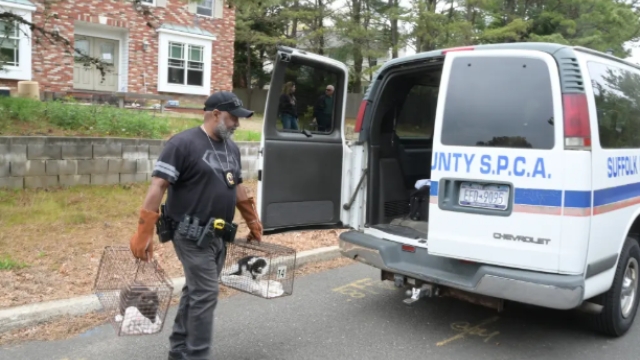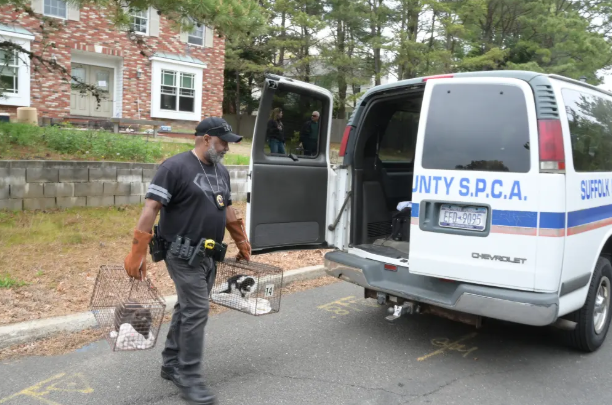
Long Island Widower, 75, Faces Animal Cruelty Charges After Dozens of Dead Cats Found in Squalid Home

A 75-year-old Long Island widower, Stephen Glantz, was arrested Tuesday on multiple animal cruelty charges after authorities discovered nearly 100 cats—dead and alive—in deplorable conditions inside his Bohemia home.
The grim discovery was made Saturday afternoon at Glantz’s residence on Westminster Drive after neighbors reported a foul odor. Fire officials found 28 dead cats, many stored in a freezer, and 69 living cats, including eight newborn kittens, amidst feces and filth. Three of the surviving adult cats were in such poor health that veterinarians euthanized them the same day.
“This is a house of horrors for these animals,” an SPCA official said, describing the overcrowded and unsanitary conditions. “The surviving cats are very sick and face a long road to recovery.”
The Suffolk County SPCA, with assistance from local animal shelters, removed the living cats, which are now receiving urgent veterinary care. The organization is seeking $10,000 in donations to cover medical costs for the felines, many of whom suffer from severe health issues due to neglect.
Neighbors said Glantz had been feeding stray cats for years, a situation that reportedly worsened after his wife’s death several weeks ago. The home has been condemned, and “Keep Out” signs were posted outside as investigators continued their work.
Glantz, who was seen speaking with animal welfare officials and placing trash bags outside his home Saturday evening, faces multiple animal cruelty charges. He declined to comment when approached by reporters. The SPCA is calling for volunteers and licensed veterinarians to assist with the cats’ treatment.
The case has sparked outrage on X, with users expressing horror at the conditions and sympathy for the animals. Some questioned why Glantz faced no charges initially, while others debated the challenges of addressing hoarding and mental health issues in elderly residents.
